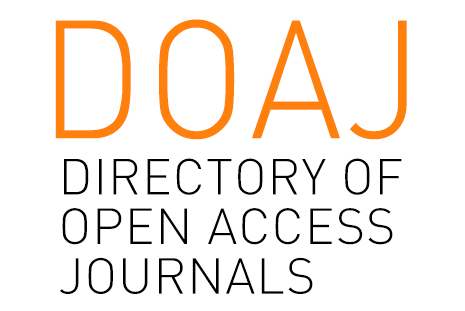Location
The Directory of Open Access Journals was launched in 2003 at Lund University, Sweden, with 300 open access journals and today contains ca. 10000 open access journals covering all areas of science, technology, medicine, social science and humanities.
DOAJ is a membership organisation and membership is available in 3 main categories: Publisher, Ordinary Member and Sponsor. A DOAJ Membership is a clear statement of intent and proves a commitment to quality, peer-reviewed open access. DOAJ is co-author to the Principles of Transparency and Best Practice in Scholarly Publishing (Principles) and DOAJ members are expected to follow these principles as a condition of membership. DOAJ reserves the right to reject applications for membership, or revoke membership if a member or sponsor is found to contravene the Principles. Read more about membership here.
DOAJ is a community-curated list of open access journals and aims to be the starting point for all information searches for quality, peer reviewed open access material. To assist libraries and indexers keep their lists up-to-date, we make public a list of journals that have been accepted into or removed from DOAJ but we will not discuss specific details of an application with anyone apart from the applicant. Neither will we discuss individual publishers or applications with members of the public unless we believe that, by doing so, we will be making a positive contribution to the open access community.
DOAJ publishes Information for Publishers on this site to help Publishers adhere to the Principles and to assist them in completing an application. DOAJ also publishes a list of FAQs relevant to all members of the publishing community, particularly libraries and authors. All information on this site is available to both members and non-members.
Aims & Scope
The aim of the DOAJ is to increase the visibility and ease of use of open access scientific and scholarly journals, thereby promoting their increased usage and impact. The DOAJ aims to be comprehensive and cover all open access scientific and scholarly journals that use a quality control system to guarantee the content. In short, the DOAJ aims to be the one-stop shop for users of open access journals.
Members:
Resources
Displaying 66 - 70 of 783Contributing to the cultural ecosystem services and human wellbeing debate: a case study application on indicators and linkages
Inadequacies in the indication of cultural ecosystem services (CES) are a hindrance in assessing their
comprehensive impacts on human wellbeing. Similarly, uncertainties about the quantity and quality of
CES, in real time and space, have hampered the ability of resource managers to precisely take responsive
management actions. The aim of the study is to demonstrate, how CES indicators can be identified and
qualified in order to link CES to human wellbeing, and to integrate them into the ‘ecosystem services cascade’
INDUSTRIAL AREA AS A BASIS FOR SPATIAL OPTIMIZATION OF LAND USE IN KIEV
In article deals with problem of using the urban land, including land under the industrial objects in Kiev. Also was analysed the ways of optimization the urban land using.
Today become particularly acute the problem for efficient use of urban land use, including land for industrial facilities non-functioning as a reserve future development of Kyiv-based ecological-economic approach to solving them.
A conquista do direito à moradia no meio rural; proposta de construção de um indicador
Resumo
IMPORTANCE FOR IMPLEMENTATIONOF SPATIAL PLANNINGAS AN INTEGRATED LAND MANAGEMENT TOOL IN UKRAINE
Scientific publications, legislation on spatial planning in Ukraine and spatial planning in Austria are analysed.
Ukrainian spatial planning system is divided into urban planning and land management planning.Urban development field belongs lion's share of planning tools, while in Ukraine is only about 4% of the land is built-up. Comprehensive conceptual spatial planning is inherently absent in Ukraine. Only single brancheshave tools for conceptual planning on the nationallevel, and therefore planning effectiveness is negligible.
ELEMENTS OF NATURE ECOLOGICAL AND ECONOMIC RELATIONS LAND OWNERSHIP IN THE AREA OF COMBATING LAND DEGRADATION AND DESERTIFICATION
InUkraine, as in many other countries, developing land degradation is a serious problem. So, despite the fact that the scale of the problem indicated in the Strategy of Environmental Policy of Ukraine (2011), analysis of economic losses from land degradation to the national economy throughout the country almost was conducted.


